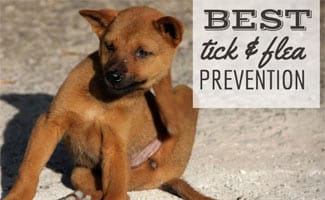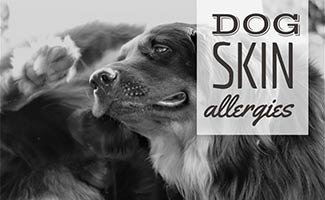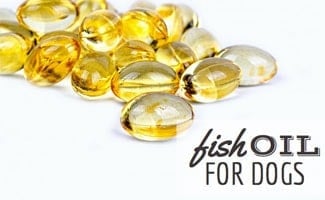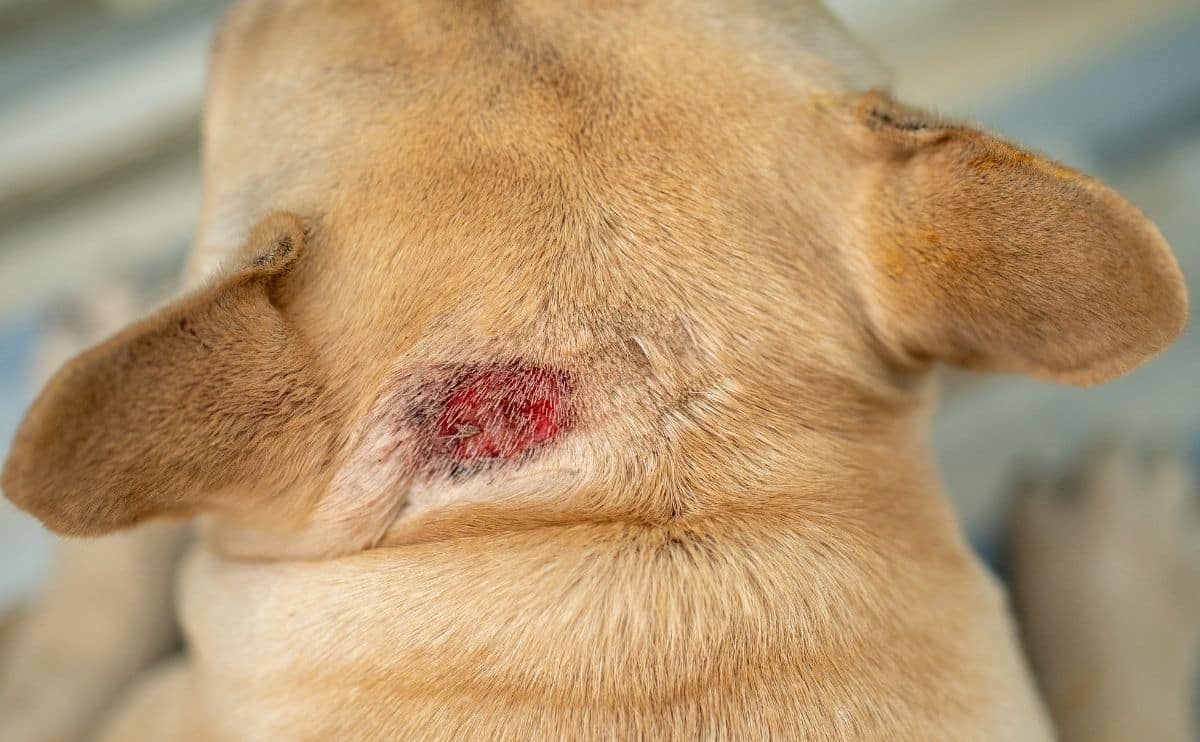Dog Itching Relief & Home Remedies For Dog Allergies
When you purchase through links on our site, we may earn a commission. Here’s how it works.

Is your dog’s itchy skin driving him a bit bonkers? As pet parents, we want to give our pups immediate relief when they’re uncomfortable. Veterinarian Katherine Baldwin shares some easy ways you can soothe your pup’s skin woes at home.
Table of Contents
Dogs love a good scratch, but excessive itching can be a sign of an underlying allergy or skin condition. It’s possible to spot the signs of irritation caused by skin conditions and manage some of them at home so your dog can get back to his fun-loving antics faster. We’ll help you know how to help give your pup some itch relief and when it’s time to see your veterinarian.
When Does An Itch Need More Attention?
It’s normal behavior for dogs to scratch, rub their bodies against objects, or shake their head from time to time. However, if this becomes excessive, it could signify a skin condition caused by fleas or other parasites, bacterial or yeast infections, or even an allergy.
If your dog’s itching is disturbing his normal routine, or you notice one of the following symptoms, then you should seek veterinary advice.
- Regular licking, chewing, biting, or scratching the same part of the body
- Regular scooting (rubbing or dragging the bottom along the floor)
- Patches of red skin, darker skin, sores, or scabs
- Hair loss, bald spots, or thinning of the fur due to scratching
- Poor sleep or less interaction/playing due to itching
Why Is My Dog So Itchy?

Itchy skin is a very common problem in dogs and can be caused by a variety of factors. Some are very simple to treat, whereas others may require veterinary attention. Common causes of itchy skin include:
Parasites
Many creepy-crawlies can inhabit our canine friend’s coat, including fleas, mites, lice, and ticks.
Fleas
If your dog isn’t protected against fleas all year round with a good-quality parasite prevention regime, then it could be fleas causing his itchiness. It’s often impossible to see live fleas on your pet, but you may notice flea “dirt” in his coat. This “dirt” is essentially the poo that fleas leave behind, and it looks like tiny black specks or dots. These black dots will turn red when placed on wet paper.
Mites
Unlike fleas, mites are microscopic, so you can’t see them with the naked eye. Mites, such as sarcoptic mites that cause sarcoptic mange, result in intense itching that leads to open sores, scabs, and hair loss.
Lice
Dog lice are small, flat, wingless insects that live on the hair. Adult lice are roughly the size of a sesame seed (about two to three millimeters) — you may be able to see them by parting your dog’s hair near the root. They don’t move quickly like fleas. Lice can cause excessive itching, hair loss, and scaling of the skin, similar to dandruff.
Ticks
These are small, oval insects that bury their head in your dog’s skin. They start off small and look like a small bump on the skin. As they feed, they grow larger and turn darker in color. Take care when removing ticks from your dog’s skin to ensure the head and mouthparts are also removed.
Allergies
When a dog’s scratching gets out of hand, it’s often the result of allergies to food or something in their environment. This can include allergies to grasses, pollens, molds, fungi, and house dust mites. Initially, your dog’s skin may look normal even though he’s itchy. As allergies progress, the skin may become red, irritated, or develop secondary infections.
Boredom Or Anxiety
Dogs can have a physical response to psychological issues, just like their human counterparts. This might result in them repetitively scratching, licking, or chewing a particular part of their body, damaging the skin.
Pain
If your dog is repeatedly licking or chewing a certain area of his body, he may be indicating that there’s physical discomfort. For example, a dog that’s biting his paw repeatedly may have a thorn or grass seed stuck between his toes or in his footpad. Compulsive licking or chewing over a particular joint can also indicate joint pain caused by conditions such as arthritis.
Hormone Imbalances
If your dog’s body is not producing enough thyroid hormone or too much cortisol hormone, problems with the skin can occur. These range from itchy skin to bald patches, reduced hair growth, or skin infections.
Itch Relief For Dogs
Because there are so many reasons dogs chew or scratch, you should seek veterinary advice to diagnose the cause of the itching and determine the best treatment plan. Depending on the cause of your dog’s itching, here are some methods that may help your pup.
Eliminating Parasites
There are a variety of antiparasitic treatments on the market. Consulting with your veterinarian will ensure that your pet gets the most effective treatment for his needs. If your dog’s itching is caused by fleas, wash your dog’s bedding, vacuum carpet, and soft furnishings regularly, and use a household flea spray to reduce the chance of reinfestation.
Changing Food
Dogs can develop allergies to a particular ingredient in their diet at any age, and this may manifest as itchy skin. Eliminating potential trigger foods can make a huge difference. This may mean trialing foods with different protein sources as part of a process of elimination. Your veterinarian may recommend a special diet if they suspect a food allergen contributes to your dog’s itch.
Addressing Anxiety Or Boredom
If you’re concerned your dog is obsessively chewing or licking due to a behavioral concern, try to monitor when he’s displaying this behavior. Is it when he’s left alone at certain points in the day or when his environment is busy or unpredictable? To reduce the likelihood of boredom or anxiety, ensure that your dog receives enough exercise and attention. Also, is it possible to distract your dog from this behavior by interacting, playing training games, or providing a safe toy to chew on?
Bathing
Bathing your dog can provide them with instant relief. Bathing can soothe your dog’s itchy skin, reduce inflammation, and wash away allergens that get trapped in the fur. Itch relief shampoos that contain aloe vera, oatmeal, or chlorhexidine can be beneficial to cool your dog’s hot, uncomfortable skin.
Natural Remedies For Dog Allergies
In addition to bathing, here are some natural home remedies for dog allergies and itchy skin that may provide your pup some relief.
Chamomile And Green Tea Soak
Bathing irritated patches of skin with cooled chamomile or green tea can soothe hot, itchy skin and provide your pooch with some much-needed relief. Ensure you let the tea cool completely before applying it to the affected area. Better still, chill it in the fridge first.
Aloe Vera
This popular plant has been used for centuries to calm hot, irritated skin. It contains natural healing properties and reduces the redness of the skin. You can apply a pet-safe aloe vera gel directly to your dog’s affected skin for instant relief.
Coconut Oil
Chilled, solidified coconut oil rubbed into your dog’s skin can soothe the discomfort associated with doggy allergies, skin infections, or insect bites. Keep the coconut oil in the fridge for extra cooling relief.
Apple Cider Vinegar
The acidity of apple cider vinegar makes it a natural antibacterial and antifungal agent. You can apply it directly to the skin by mixing 50% apple cider vinegar and 50% water as a homemade dog anti-itch spray. However, be careful not to spray it on broken skin or open wounds as this may worsen symptoms.
Over-The-Counter Itch Relief Medication
You may also want to consider some of these OTC dog itching remedies to help provide your canine companion some relief.
Supplements
Feeding your dog a balanced diet is essential to maintaining skin health. Supplementing your dog’s diet with an Omega-3 fatty acid or fish oil can improve the skin’s natural barrier to allergens and help to moisturize the coat, preventing dry, flaky skin.
Antihistamines
Over-the-counter antihistamines are sometimes safe to give to dogs to relieve allergy symptoms or counteract allergic reactions. It’s important to read the label carefully to ensure that the product only contains an antihistamine. Some may contain other ingredients, such as decongestants, which aren’t safe for dogs. Check with your veterinarian to make sure that the antihistamine that you have is safe for your dog.
Steroid Spray, Gels & Creams
Over-the-counter steroid preparations contain lower percentages of active ingredients than prescription steroids and may help reduce the itchiness of insect bites and allergic reactions. However, you should use steroid medication with caution as it may delay healing wounds and skin infections. Seek veterinary advice before using any steroid medication as it may interact with other medicines your dog may be taking or worsen his symptoms.
How To Make Homemade Anti-Itch Dog Spray
This four-minute video gives you some great tips on how to make an all-natural and inexpensive home remedy to relieve your dog’s itchy skin.
Complications From Excessive Scratching
Above are some of the quickest and easiest home remedies to soothe your dog’s itchy skin and help restore him to full health. However, if your furry friend continues to be irritated by his skin, then seek advice from your veterinarian to ensure you get to the bottom of the itch as soon as possible.
Also, keep an eye on your dog’s skin. Minor itching and rashes from skin allergies, parasites, or other causes can lead to more serious problems like skin infections or hot spots that require vet-prescribed antibiotics.











